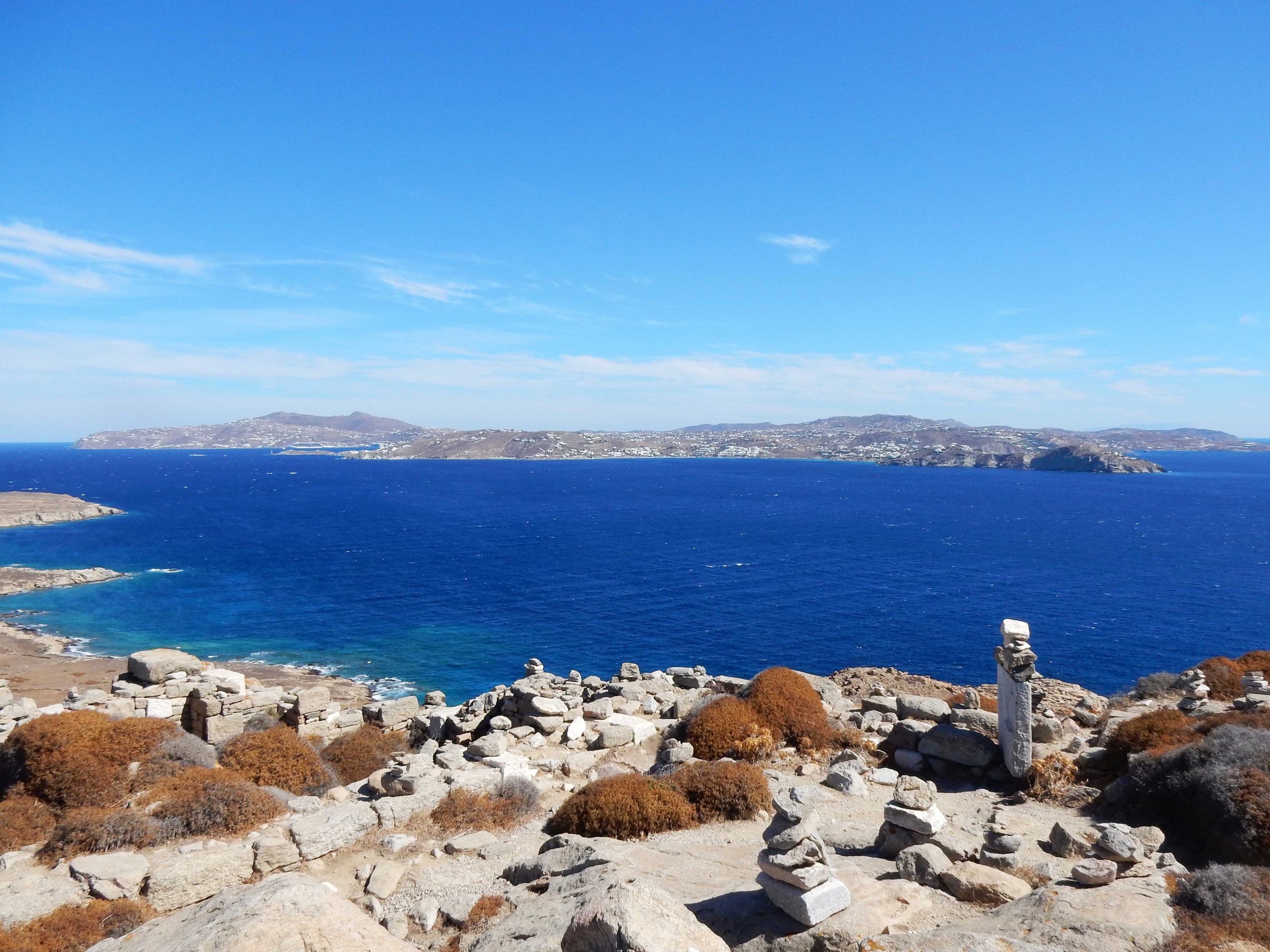The UNESCO world heritage site of Delos island is expecting an integrated system to be installed on the island in early 2024 in an effort to help monitor and protect the archaeological site and its monuments from the impact of climate change, according to “Ta Nea.”
Comprised entirely of antiquities, such as an ancient theater, houses and sanctuaries, the site is now under threat from climate change. Buildings which were located on land just a few years ago, are now covered by the sea. In some areas, special platforms have been erected to keep the antiquities from sinking into the mud as the water table rises, while other areas turn into lakes after heavy downpours. As a result, a recent study by the Academy of Athens ranked it in 14th place out of 244 declared UNESCO World Heritage Sites on the Mediterranean in terms of risk from natural disasters (climate change, earthquakes and extreme weather).
In view of the threats to the archaeological site, the integrated system will be carried out by the Center for Research in Atmospheric Physics and Climatology of the Academy of Athens with the support of Initiative 21 and private entities, and in collaboration with researchers from the National Observatory of Athens and archaeologists. It is scheduled to start in early 2024 and will last for 24 months, employing 16 scientists.
The project aims to determine vulnerability and risk, taking into account climate risk indicators and special characteristics of Delos, such as the coastline and monuments. In accordance with the objectives of the project, the project will conduct work in the fields of climate analysis, atmospheric and marine measurements, identification and recording of geodynamic risks, development of computational applications and models, and finally their management and dissemination.
In detail, a ‘supercomputer’ will be installed at the headquarters of the research center that will integrate real time data that it will receive from the automated weather station located on the island. A tidal station will be installed on the island’s port to track the sea-level and wave height as well as two seismological stations to record earthquakes.
Up until now, researchers note that they have monitored the impact of climate change on the antiquities empirically. But now, with the system, they will have important information about the climate such as the composition of salt spray, which erodes monuments. The integrated monitoring system will therefore become both a risk prevention and management tool that will contribute to the observation of the evolution of risks.
Delos is located across from the famous tourist island of Mykonos, and was excavated 150 years ago by the French Archaeological School of Athens. The site is considered to be one of the most significant mythological, historical and archaeological sites in Grece and one of the most extensive in the Mediterranean.



